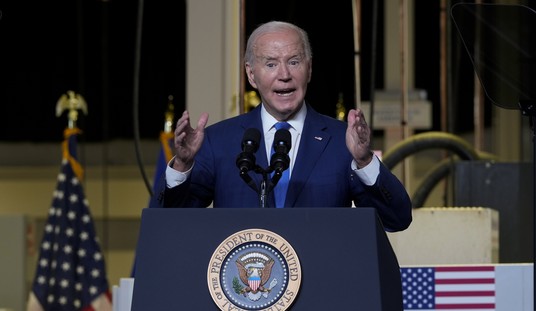Over the long Independence Day weekend in America, did you spend more time in your little bedroom community pondering the potential of a terrorist attack than wondering how long you should let your hot dogs sizzle on the grill? If so, then America has far more serious problems than terrorism.
Right before the American holiday that's supposed to exemplify freedom, the U.S. Department of Homeland Security and the FBI warned their law enforcement colleagues across the country to watch for terrorist attacks, despite not having any credible or specific threat.
Former NSA contractor Edward Snowden is currently a wanted man in part because he leaked some top-secret documents that, as per the formal definition of the term, would pose a threat to national security if disclosed. Doesn't the declaration of a nonspecific threat to Americans, in the admitted absence of credible evidence, constitute a similar threat to national security and Americans' sense of well-being?
Asking Americans to take such warnings to heart and to maintain a state of nonspecific hyper-vigilance is terrorizing unto itself. If the U.S. government is constantly spreading insecurity among its own people, then the terrorists' job is being done for them.
Of course, if you catch a glimpse of your neighbor stockpiling weapons in his apartment, or hear him casually talking about wanting to blow things up, then of course you're going to report it. But would you really know what to look for in a more typical case?
Recommended
Try this experiment: Sit back, close your eyes, and picture in your mind's eye what an Islamic State supporter in America would look like. Try to imagine that person's physical appearance and behavior. Got it? OK, now ask yourself where you got the information to construct that profile. Did it come from news reports of terrorist attacks in Africa, France or the Middle East? It sure didn't come from the U.S. government, which never seems to publicize a profile or composite sketch of the bogeyman. Americans are instead subjected to endless warnings to be vigilant about an entity that they're left to conjure up in their own imaginations.
Let's have a look at the reality of the "Islamic State terror suspect" profile in America and see how it compares to what you imagined.
A study released last month by the Fordham University Law School revealed that only 56 people in America have been charged with Islamic State-related activities or support since March 2014, and three other suspects were killed by law enforcement authorities. The average suspect (80 percent of them) used social media to mouth off about their support of the Islamic State. More than 60 percent of those charged were under the age of 21. None were actually Arabic, and the majority were Caucasian. All but one were born in America. In cases involving foiled domestic terror plots, 79 percent were "discovered" by the FBI itself and not in the wild by people finking on their neighbors and fellow citizens.
Twitter, a favorite Islamic State platform for expression and propaganda, boasts more than 300 million active monthly users who collectively send 500 million tweets per day. Considering the ubiquity of Twitter, the fact that the typical "American ISIS" profile resembles that of an average American emo kid grasping for the meaning of life, and the constant bombardment of "see something, say something" instructions, it's easy to see how authorities could become overwhelmed. And really, the authorities tasked with managing the Islamic State threat already have more than enough resources, they know exactly where to look for the real threats, and they have the skills required to assess the legitimacy of risk in these cases.
The fearmongering by law enforcement officials is counterproductive, but it serves to keep the taxpayer-funded gravy train on the rails -- for government agencies and also for the security-industrial complex, which is shot through with cronies. Don't these officials think that 56 Islamic State-related arrests of mostly Caucasian Americans is enough to justify taxpayer largesse for antiterrorism activities in the homeland?
Defining the reality of the situation takes a lot of the terror out of terrorism and demystifies the bogeyman. Realizing that, except in blatantly obvious cases, the average American isn't equipped to play amateur detective -- and that most cases aren't picked up as a result of citizen involvement anyway -- authorities should dial down the hysteria about the potential for terrorist attacks.
Attempts to hijack American holidays with publicity campaigns driven by scare tactics should be the exclusive domain of actual terrorists, not of a government that claims to be fighting them.























Join the conversation as a VIP Member